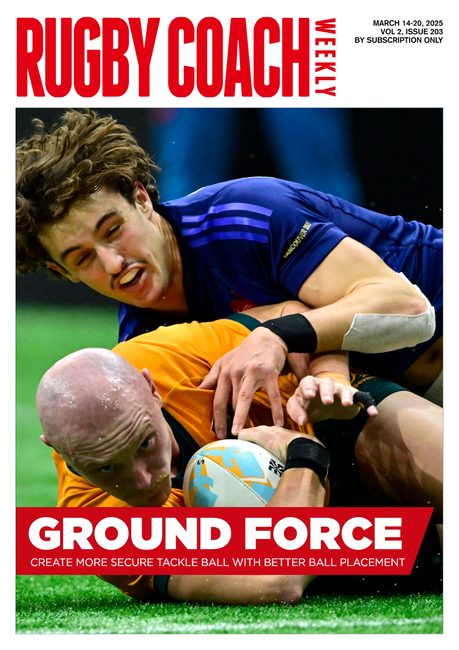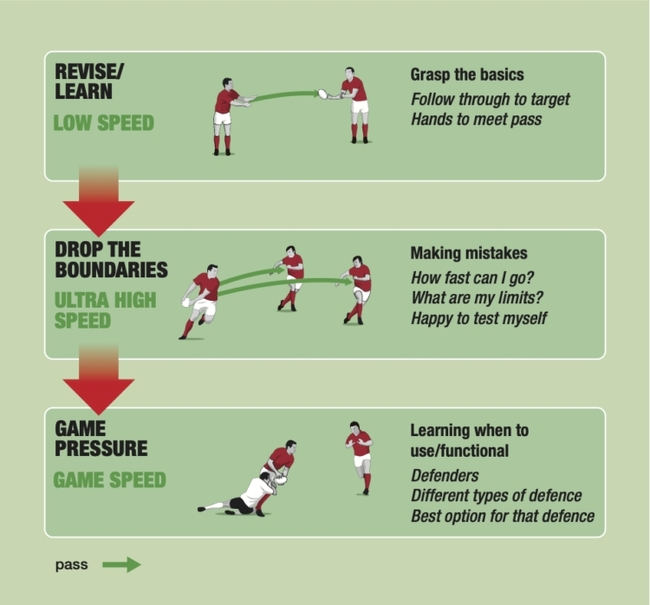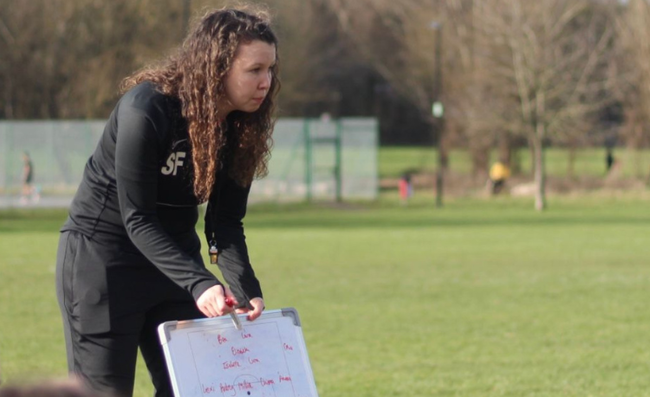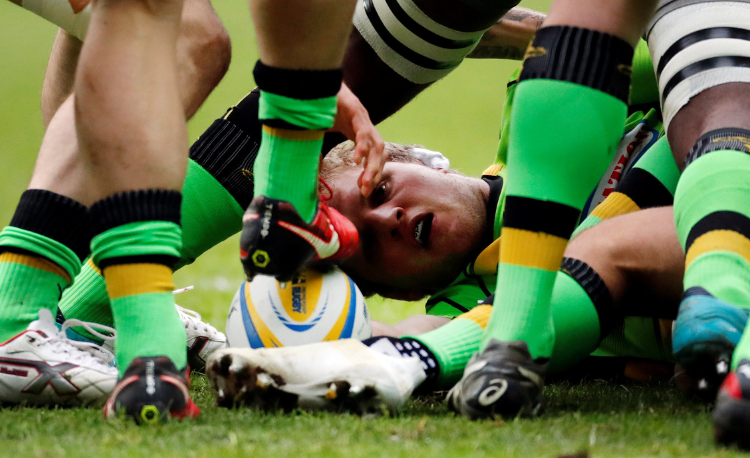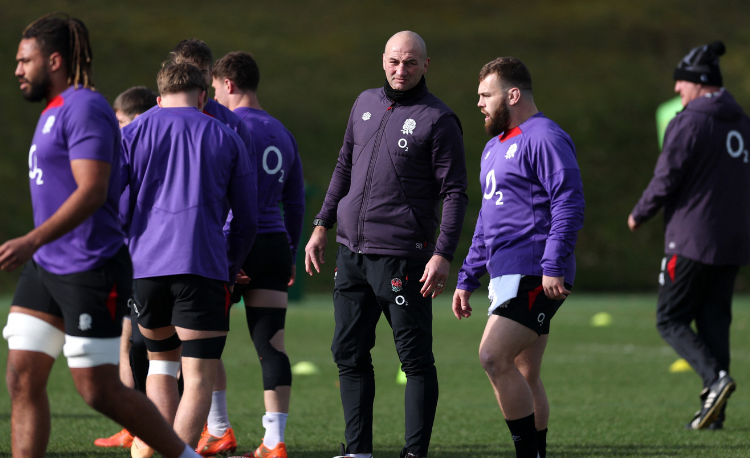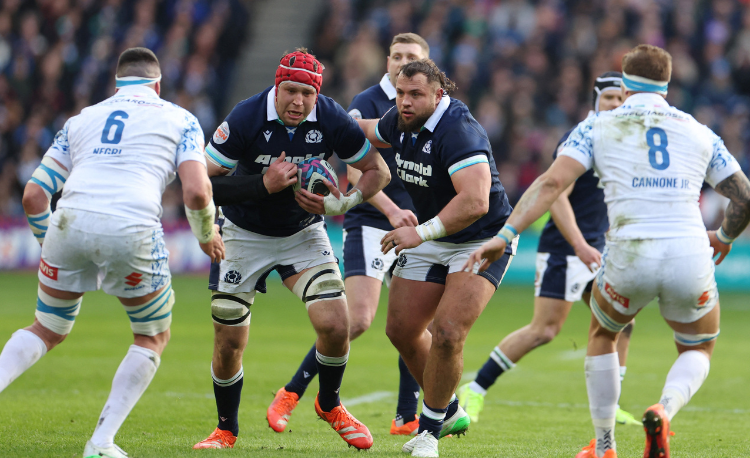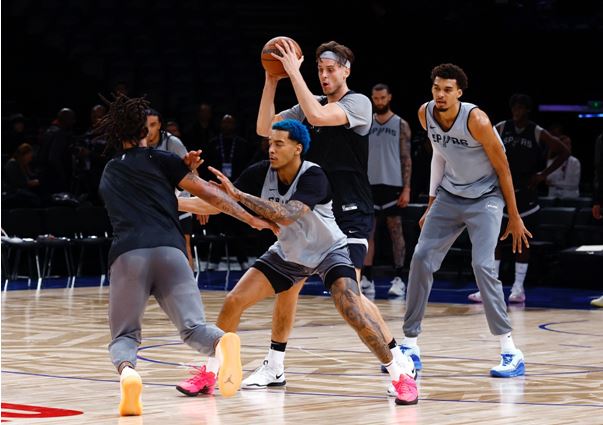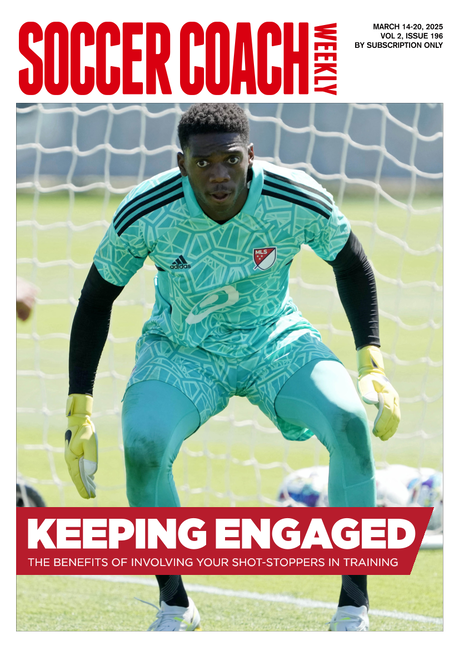How to bounce back from defeat
Don't despair after suffering a heavy home defeat in your first game of the season. Learn from what went wrong, move forward and focus on putting your plan to succeed into action.

To be able to win in the future it is vital to know how to deal with defeat. When I faced a situation like this with the team I worked with, this is how I handled it and eventually managed to come through the other side.
We had just played our opening game against Gloucester back in the Guinness Premiership. Supporter expectation prior to the game had been whipped to fever pitch with the help of a marketing machine that was not only our major sponsor, but also our new owner. And yet, for all the hype and preparation, with a winning season behind us from last year, we were clearly beaten by a better side.
The score was 49-24 to Gloucester. What made the scoreline even worse for me was the fact that we had conceded nearly 50 points – I was the defence coach! The only option I had was to try and deal with the situation.
Though the score was a reality check, it was a check that needed to be put into perspective. We were playing against a team who had plenty of international experience.
Over the last few years, they had been a strong force in the Premiership. This had to be balanced against a team which had just graduated from National 1 and, with the exception of one or two players, consisted mainly of players who had never been close to playing in the Premiership. In fact most of them had only just graduated from the Leeds Carnegie Academy.
So, the first thing I had to do was not press the panic button and focus on what the way forward was. For me, the key to dealing with outcome lies in the process of effectively reviewing and feeding back on the performance. Only then can you formulate the potential solutions.
You must be in position to deliver coaching effectively, in victory and defeat. “Know thyself”, a Greek maxim, says that understanding how you deal with things helps you explain your actions.
I quickly found a mechanism for dealing with defeat. It was a process that allowed me to get over the result and move forward to a place where I could think clearly and therefore assess the performance in a balanced, clear and objective manner. By the time the players arrived for work on their first day back I had the game in perspective and was ready to discuss potential solutions with them.
When my job is to look after defence, I have a checklist to work through each game. It is split into two parts: 1. the system and 2. the personnel.
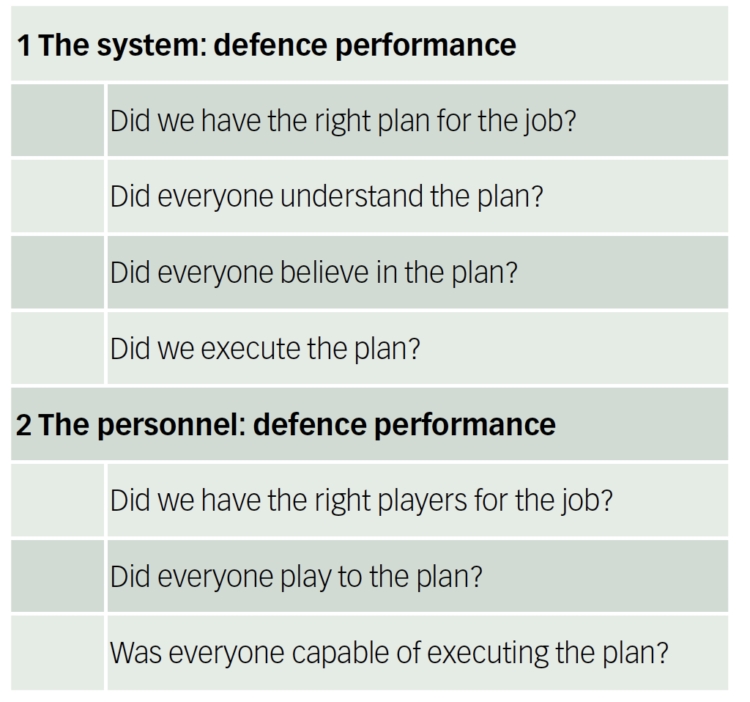
I work through these checklists with the players to solve problems and find solutions. Together we can then formulate a way forward.
One of the problems we faced was that a key member of the team had a significant defensive deficiency. It was a Catch 22 situation. Offensively and strategically he was our lynch pin, defensively he was becoming a weak link and a target for the attack.
So we embarked on a skill acquisition programme. We identified the skill needed: tackle technique. We then established the player’s learning preferences and devised a learning strategy tailored to the individual.
We developed a coaching programme to meet the needs, employing the coaching process (plando- review). At the end, we assessed the effectiveness of the learning strategy.
When I reflect back on the season, this instance was one of the real positives I could draw from the experience. The skill acquisition programme was a huge success. Over the remainder of the season the player in question increased his tackle completion from 50% to a consistent 85% and was regarded as one of the toughest tackling and competitive players in the competition. Result!
We had reached game four, and we were still losing and leaking tries. It was essential that we reviewed our strategy. This situation can be very lonely, so it was crucial I did not go it alone.
I utilised the expertise within the coaching group and the players I regarded as the defensive leaders within the team. As a group we drew up an action plan which looked at three distinct areas: the defensive system, a specific key team weakness and goal setting.
We decided to simplify the system. We were currently relying on too few players who were having to make too many decisions in defence. We modified the system to reduce decision making and shift this to become a team process, rather than falling to just one or two players
We focused our training on what we reckoned was our key weakness - one-on-one tackling. We also set a goal for each game - not to concede more than 22 points.
The reason? It’s fairly widely recognised that in the Premiership a winning team normally scores 22 points.
No matter what strategies you put in place, how committed you are, or how much effort you put into something, sometimes you will face a situation where the differences between you and the competition are so great that the outcome becomes inevitable.
However the only real failure is to give up. This is unquestionably the case with coaching. In sport there will always be victories and defeats, the highs and the lows. You have to recognise that in every scenario and every situation there are key experiences that you can learn from and draw on in the years to come.
As a coaching team and a playing squad we prided ourselves on the fact that we never threw in the towel. We were committed to staying true to our values and maximising our opportunities. This allowed us to enable a strategy that would see us bounce back from relegation.
I have developed a system for review my team’s process and performance. I have built this up over a number of years and it works for me and my team.


To be able to win in the future it is vital to know how to deal with defeat. When I faced a situation like this with the team I worked with, this is how I handled it and eventually managed to come through the other side.
We had just played our opening game against Gloucester back in the Guinness Premiership. Supporter expectation prior to the game had been whipped to fever pitch with the help of a marketing machine that was not only our major sponsor, but also our new owner. And yet, for all the hype and preparation, with a winning season behind us from last year, we were clearly beaten by a better side.
The score was 49-24 to Gloucester. What made the scoreline even worse for me was the fact that we had conceded nearly 50 points – I was the defence coach! The only option I had was to try and deal with the situation.
DON'T PANIC
Though the score was a reality check, it was a check that needed to be put into perspective. We were playing against a team who had plenty of international experience.
Over the last few years, they had been a strong force in the Premiership. This had to be balanced against a team which had just graduated from National 1 and, with the exception of one or two players, consisted mainly of players who had never been close to playing in the Premiership. In fact most of them had only just graduated from the Leeds Carnegie Academy.
So, the first thing I had to do was not press the panic button and focus on what the way forward was. For me, the key to dealing with outcome lies in the process of effectively reviewing and feeding back on the performance. Only then can you formulate the potential solutions.
HEAL THYSELF
You must be in position to deliver coaching effectively, in victory and defeat. “Know thyself”, a Greek maxim, says that understanding how you deal with things helps you explain your actions.
I quickly found a mechanism for dealing with defeat. It was a process that allowed me to get over the result and move forward to a place where I could think clearly and therefore assess the performance in a balanced, clear and objective manner. By the time the players arrived for work on their first day back I had the game in perspective and was ready to discuss potential solutions with them.
REVIEWING THE DEFENCE PERFORMANCE
When my job is to look after defence, I have a checklist to work through each game. It is split into two parts: 1. the system and 2. the personnel.

I work through these checklists with the players to solve problems and find solutions. Together we can then formulate a way forward.
IDENTIFY THE PROBLEM
One of the problems we faced was that a key member of the team had a significant defensive deficiency. It was a Catch 22 situation. Offensively and strategically he was our lynch pin, defensively he was becoming a weak link and a target for the attack.
So we embarked on a skill acquisition programme. We identified the skill needed: tackle technique. We then established the player’s learning preferences and devised a learning strategy tailored to the individual.
We developed a coaching programme to meet the needs, employing the coaching process (plando- review). At the end, we assessed the effectiveness of the learning strategy.
When I reflect back on the season, this instance was one of the real positives I could draw from the experience. The skill acquisition programme was a huge success. Over the remainder of the season the player in question increased his tackle completion from 50% to a consistent 85% and was regarded as one of the toughest tackling and competitive players in the competition. Result!
WINS STILL ELUSIVE?
We had reached game four, and we were still losing and leaking tries. It was essential that we reviewed our strategy. This situation can be very lonely, so it was crucial I did not go it alone.
I utilised the expertise within the coaching group and the players I regarded as the defensive leaders within the team. As a group we drew up an action plan which looked at three distinct areas: the defensive system, a specific key team weakness and goal setting.
We decided to simplify the system. We were currently relying on too few players who were having to make too many decisions in defence. We modified the system to reduce decision making and shift this to become a team process, rather than falling to just one or two players
We focused our training on what we reckoned was our key weakness - one-on-one tackling. We also set a goal for each game - not to concede more than 22 points.
The reason? It’s fairly widely recognised that in the Premiership a winning team normally scores 22 points.
NEVER GIVE UP
No matter what strategies you put in place, how committed you are, or how much effort you put into something, sometimes you will face a situation where the differences between you and the competition are so great that the outcome becomes inevitable.
However the only real failure is to give up. This is unquestionably the case with coaching. In sport there will always be victories and defeats, the highs and the lows. You have to recognise that in every scenario and every situation there are key experiences that you can learn from and draw on in the years to come.
As a coaching team and a playing squad we prided ourselves on the fact that we never threw in the towel. We were committed to staying true to our values and maximising our opportunities. This allowed us to enable a strategy that would see us bounce back from relegation.
REVIEW THE TEAM'S PROGRESS
I have developed a system for review my team’s process and performance. I have built this up over a number of years and it works for me and my team.

Thank you for reading
to enjoy 3 free articles,
our weekly newsletter, and a free coaching e-book
Or if you are already a subscriber, login for full access
Newsletter Sign Up
Coaches Testimonials

Gerald Kearney, Downtown Las Vegas Soccer Club

Paul Butler, Florida, USA

Rick Shields, Springboro, USA

Tony Green, Pierrefonds Titans, Quebec, Canada
Subscribe Today
Be a more effective, more successful rugby coach
In a recent survey 89% of subscribers said Rugby Coach Weekly makes them more confident, 91% said Rugby Coach Weekly makes them a more effective coach and 93% said Rugby Coach Weekly makes them more inspired.
Get Weekly Inspiration
All the latest techniques and approaches
Rugby Coach Weekly offers proven and easy to use rugby drills, coaching sessions, practice plans, small-sided games, warm-ups, training tips and advice.
We've been at the cutting edge of rugby coaching since we launched in 2005, creating resources for the grassroots youth coach, following best practice from around the world and insights from the professional game.

